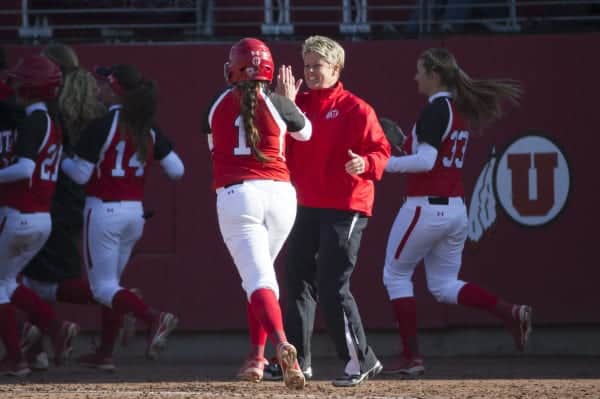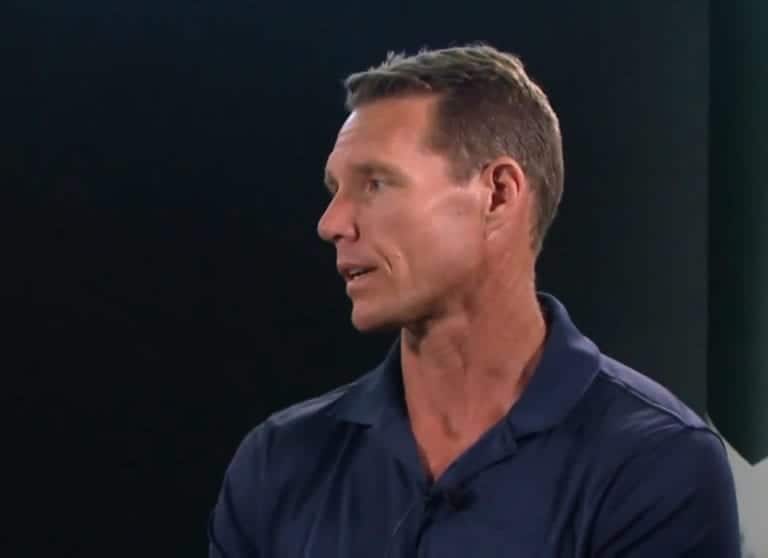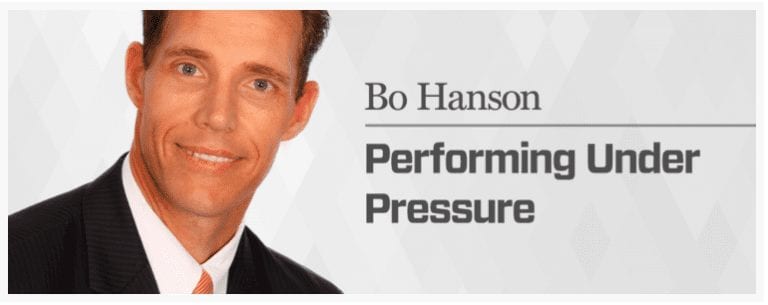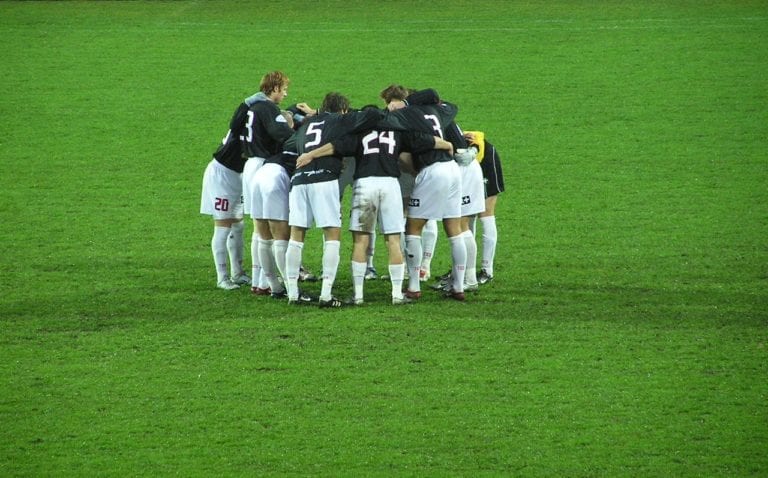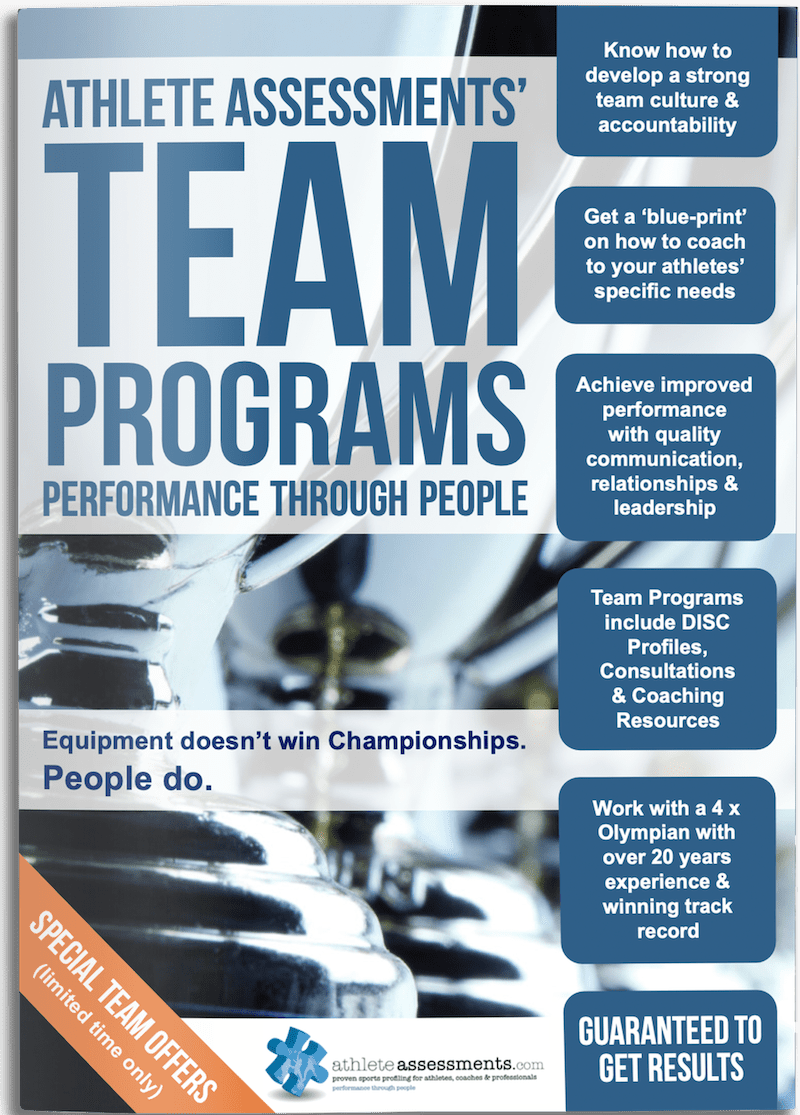You may be the highest scorer or best hitter in your team, but it takes more than that to last the distance and to be chosen out of a field of hopefuls all wanting to make the cut.
Today more than ever, Coaches have more on their “talent” criteria than just the ability to hit a ball or throw a great pass. Now is the most competitive time in the history of sport. We are witnessing a global population of young athletes vying for college scholarships. Those who are out of college have their heart set on being drafted into pro teams or being selected in their country’s Olympic team. There is no question that the ticket to greatness is threshold levels of physical ability and technical skill. But these two elements just get you noticed – they do not get you selected anymore. Why? Because many of your competitors have more than just these two criteria.
So, if it is not your physical or technical ability that captures a Coach’s attention, what does?
Put simply, the qualities making the difference today is your knowledge of yourself, your ability to be a great team member, your skill in leading others and your level of toughness under pressure.
So the question becomes, how many of these elements do you have now?
If you think you have these elements covered, then I would suggest you don’t. In fact, any athlete who thinks they are “good enough” in these areas cannot possibly be. Each of these areas have no “upper limit”. They are skills, much like a technical skill, that can be continually refined and enhanced, the neural pathways can always further develop.
The point is, these skills can always be improved. Knowing you can improve in these areas suggests some level of self-awareness and more importantly suggests a growth mindset. If an athlete says they have enough of these skills, that to me is a massive warning sign that they actually lack the ambition and drive to truly deliver exceptional performance.
Let’s elaborate on these elements and skills and further define them.
1. Knowledge of Yourself
This is what we call self-awareness or knowledge of your strengths, limitations, motivations, values and preferred behaviors – everything you find out in your AthleteDISC Report. Here is a likely scenario for you.
Imagine you are being interviewed by a Coach who does not know you except for what they have seen through video footage or maybe at a live game. They ask you to “tell me about yourself.” How do you answer that? What do you say? The question is designed to be open ended and to give you room to talk about what you feel is important information to tell the Coach.

As a Coach myself, what I want to know about is your “non technical” strengths. I already know what your technical skills are. As a coach, we have an eye for this information. This is why you are being interviewed. What you say next determines whether you are up to the challenge of managing an athletic scholarship and if I feel more than 80% ready to take a risk on you. I also want you to tell me what some of your “non-technical” limitations are.
What are the areas you know you need to do better in? Perhaps I would ask you to tell me how your team members may describe you. Do you have the awareness to know how you are perceived and thought about by others? Would their description of you match your own? You know your Coach will check references.
I love the scene in Draft Day (2014) when the Kevin Costner character trades his number one pick after researching the fact that the number one pick did not have any of his college team members at his birthday party. Not a big deal? It is to a Coach who believes this must say something negative about the “type of person” this player is.
In my own Olympic experiences which spanned four Games, not once did I ever have a concern about the people (note I did not describe them as rowers) who were in my team. I trusted them and they trusted me. We enjoyed each other’s company post Olympics when we did not have to hang out together and recently at our reunion the bonds are still as strong as ever. Good people is what Coaches and pro teams are looking for because the cost of not having good people can be millions of dollars and always irreparable cultures.
In a world concerned with social justice issues (and rightly so), fans are becoming unforgiving of athletes behaving badly, even if they score a winning goal.
2. Your Ability to be a Great Team Member
This is all about contributing to the team beyond just what you technically do on the field of play. It’s about being the best athlete FOR the team, rather than the best athlete ON the team.
Being the best player for your team means maximizing your own performance and maximizing the performance of the team as a whole. It’s about determining not only how to get the best out of yourself as an individual, but also asking the question, “how can I add value to someone else and make them better by being on the team with them?”

I want to know how effectively can you empathize with others? Can you put the team ahead of your own ego and needs? Do you look out for others? Would you play and have you played a role on the team you did not prefer to play but happily did it because the team needed you to?
Do you have examples of times where you played the support role because you knew it was going to help a team member to learn and grow? What about your other roles on the team? Did you encourage, drive energy, give direction, remember some spare uniform or kit for others or did you study the opposition and analyze their play – just to help your team?
The list of things you can do to help others is endless. As a Coach, I am filtering everything you say to find out what sort of team member you are based on your direct answers to my questions.
3. Leadership Skills
More than ever the current generation of athletes are criticized for their lack of leadership ability and experience. As a Coach, I know it is not your fault. Parents, administrators and Coaches have taken these roles away from you. If we look at the way older generations developed these skills, it was by trial and error in their respective school yards, through selecting teams and organizing start up games.

So the point is, how have you demonstrated leadership despite this environment you have grown up in? I am looking for on and off ‘court’ examples. When did you give feedback to a team member who you thought needed to improve in some area? When did take charge of a crisis situation on the court or in the boat when all was going wrong and someone needed to do something? When did you hold your team member accountable for not living up to team standards? When did you represent your team off field and showcase what a great culture your team has through the way you behave yourself?
The reality is there are many times and opportunities to showcase leadership, and leaders look for these opportunities and step up to them without being asked. If you want to know why this quality is so important, it is because Coaches know that great athlete leaders make their life easier and help the team win more often which helps us as Coaches to keep our jobs too.
4. Toughness Under Pressure
This is a massive skill and one I value highly because it is the tip of the iceberg of all other skills. If you show me your toughness (being ATHLETE TOUGH™) I know for a fact you must be a leader, you are obviously a great team member and you certainly have a great level of self-awareness. So tell me what you think being ATHLETE TOUGH™ is all about? What does toughness mean?
When I ask you these questions I am filtering for whether you understand the meaning of toughness. Perhaps you describe it as being resilient or coping well under pressure or maybe you say it is all about your ability to bounce back. All correct. Now I want to know when you practiced these things.
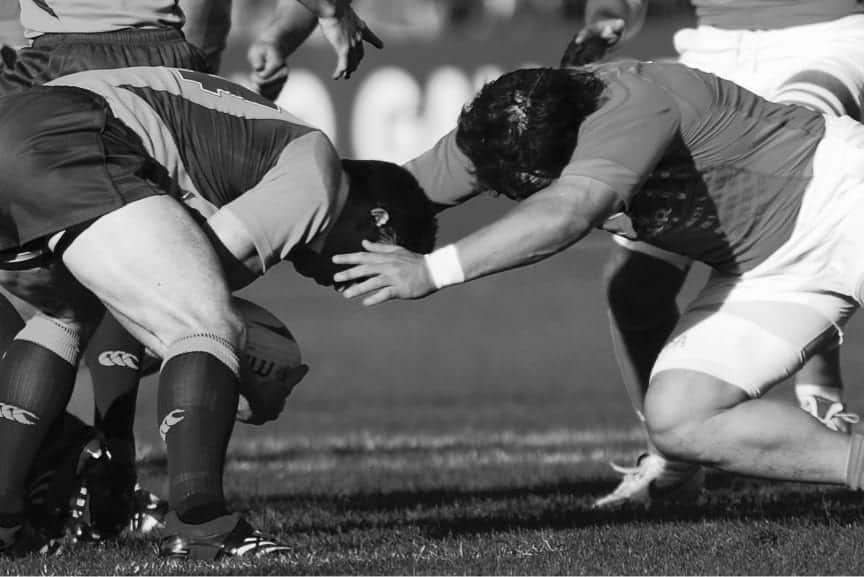
Give me examples of how you kept going despite discomfort. Tell me how you were brought up by your parents. Did they do everything for you so you were provided every opportunity in life? If so, you probably won’t be in my team.
I know for a fact that unless you have experienced discomfort you are likely not ATHLETE TOUGH™. I know that unless you were given the opportunity to make your own choices and decisions, that you are not likely to be able to deal with the difficulties of life away from home in an elite College program where I am expecting total commitment to our team.
I want to hear times when you overcame adversity, how you grew from a difficult situation. I do not care if you handled it well, instead I care that you handled it. You put yourself out of your “comfort zone” and you backed yourself to have a go. I care about your strategy for being ATHLETE TOUGH™. I want to hear what you say to yourself, how you focus and on what and how you add value by being an example to the rest of your team in terms of toughness. If you can show me this, then I can help you be the best athlete you can possibly be.
For more on this topic, read ‘9 Things Tough Athletes Do without even Thinking’ or ‘US Navy SEALs Resilience: Lessons on Mental Toughness’.
Where to from here…
Again, today more than ever Coaches are searching for these skills and abilities. They are not character traits, they are learnable skills and abilities and while Coaches can teach these in their program, the reality is, Coaches would far prefer to recruit athletes who can show they have these desirable qualities and enhance them – we cannot start from scratch at the college and pro level.
I want you to think about these factors and ask yourself, do you make the cut?
At Athlete Assessments, we’re here to provide you with excellence in service and here to help you be your best. If there is anything we can assist you with, please Contact Us.
Suggested Articles
By Lahnee Pavlovich, Head of Research and Writing, Athlete AssessmentsAthlete Assessments’ Bo Hanson spoke at the recent National Rugby League Coaching Seminar about Coaching Millennial athletes. We have captured his presentation on Coaching Millennials and created…
As a Coach, when an athlete shows initiative and takes ownership of team culture, it’s a big deal.
Culture is a measure of the observable behaviors your team and organization promotes and accepts. Ultimately, culture is best defined as ‘the way we do things around here’ or ‘the way we behave around here’. Culture is not what you think, or want to do, it is what you actually do.
Accountability in sport is doing what you say you’re going to do and executing the task to the best of your ability. Then being able to put your hand up and say ‘this is what I need to do better’ if you don’t get it right. Being accountable is not making excuses, not blaming others or whinging and complaining. Accountability in sport is taking ownership of something and making sure you ‘know your job and do your job’ 100% of the time.
Athletes and coaches understand the importance of each individual player performing at their personal best and to striving to be the best player they can be. But what does it mean to be the “best player for the team”?
During preparation for the 2004 Olympics, Athlete Assessments Bo Hanson was selected in the Men’s Eight Rowing team for Australia. He was performing at his personal best and for a period, was ranked as the number 1 athlete in Australia.
By Kate RossBo Hanson was recently interviewed on an episode of Rick Sessinghaus' Perform for Success Podcast and discussed Performing Under Pressure. Perform for Success: Performing Under PressureWhen we think about the highest achievement in sports, competing and medaling at the…
Being a team captain means having an important leadership role in the team. Often, teams have more than the standard captain and vice-captain duo, with a senior group of leaders appointed to steer the team from within. It is no surprise that research into sport teams’ success emphasizes the importance of the role of Team Captain.


